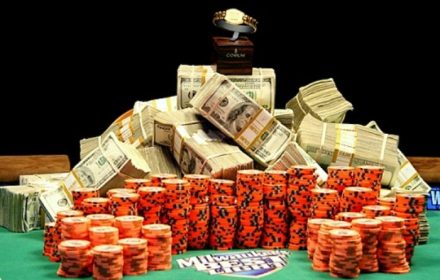Craps is a game with dynamics, excitement, and sudden large prizes. The tax on winnings in Russian casinos turns any success at the table into a question not only of luck but also of lawfulness. Russian legislation imposes obligations to pay a fee on any income from gambling, regardless of its form – cash prize, bank transfer, or digital payment through an online platform. Craps players often act impulsively, especially in the case of an unexpected jackpot. However, a lack of understanding of the tax burden leads to fines, problems with accounting for funds, and additional risks when dealing with the Federal Tax Service (FNS).
Differences between online and offline casinos in terms of taxation
The format of the establishment plays a key role. The tax on winnings in Russian casinos requires different procedures depending on the source of income. Offline establishments operating legally in one of the official gambling zones are required to withhold a percentage at payout. Their cash register interacts directly with the FNS system, ensuring tax accounting for winnings that exceed the established threshold. This approach minimizes the player’s responsibility: the tax is paid automatically, the information is entered into the database, and no additional actions are required.

Online casinos create a completely different situation. Registering a resource in a foreign jurisdiction, the absence of a license in Russia, or working through cryptocurrencies raises doubts about the legality of such an operator. If the platform does not withhold a percentage, the player is obliged to independently contribute the amount to the budget. This is especially true in cases where online winnings are received in a bank account. Understanding the consequences is important, distinguishing legal Russian platforms, such as Fonbet Casino, from offshore resources without licenses. In the latter case, the tax on winnings in online casinos in Russia is not withheld, but the obligation to pay remains.
Conditions for taxing craps winnings
The tax on winnings in Russian casinos establishes precise parameters determining when and in what amount funds must be contributed to the budget. According to the Tax Code, any individual – a resident of the country, must pay 13% of the winnings. If the game participant has non-resident status, a rate of 30% applies.
Profit from a gambling session is classified as “other income” and is included in declaration form 3-NDFL. The tax code makes no exceptions for the type of game – craps, roulette, blackjack, or poker fall under general rules. The amount becomes crucial: a prize starting from 4,000 rubles must be mandatory recorded. Even if the casino does not provide information, the FNS can detect the inflow through bank control.
Large prizes are often paid in installments. In this case, each bank transfer is considered as separate income. The accounting system must record all receipts with details – date, source, amount. Financial accounting requires full transparency: during inspection, the tax authority analyzes the account statement, checks operations involving offshore recipients, and verifies sources with known databases.
Examples of calculating taxes on casino winnings in Russia
A player received 150,000 rubles, hitting the jackpot at the offline “Sochi Casino” hall. The cash register withheld a percentage at payout, and 130,500 rubles were handed over. In this case, the FNS will not make additional demands since the tax on winnings in Russian casinos has already been paid by law.
In another scenario, a user played craps on a foreign platform via VPN, received a payout of 90,000 rubles in cryptocurrency, and converted it into rubles through an exchange. Such operations are classified as income requiring self-declaration. Failure to pay the tax will result in fines and penalties. Let’s consider cases involving a citizen and a non-resident. If a resident received 300,000 rubles, the rate will be 13%, and the tax will amount to 39,000 rubles. Meanwhile, a non-resident with a similar win must pay 90,000 rubles. The difference is significant, especially in the context of regular victories when tens of thousands of rubles are at stake monthly.
Points to consider when self-paying taxes
A player who received income from an online casino without automatic tax withholding must take the following steps:
- Obtain confirmation of the win (screenshot, statement, email from the casino).
- Account for all transfers, including intermediate transactions and conversions.
- Prepare declaration 3-NDFL, indicating the type of income and source.
- Attach financial documents – bank statement, platform data.
- Pay the tax by July 15 of the year following the win.
- Keep copies of documents and payment orders.
Any error in reporting leads to a fine. The law allows the FNS to initiate an inspection if there is a discrepancy between the declared income and the actual movement of funds. This is particularly relevant in cases where online casinos use foreign transfers or anonymous services.
Legislative basis for taxing casino winnings in Russia
Russian legislation strictly controls gambling. The tax on winnings in Russian casinos is based on the provisions of the Tax Code, articles on other income, and the current rules of the FNS. The regulator monitors inflows, initiates cross-checks with banks, and establishes a connection between participants and operators through payment system data.
The FNS uses automated transfer analysis algorithms, verifies sources with internal databases, and applies predictive scenarios when transactions fall into the risk zone. A player regularly receiving payouts from the same addresses automatically attracts attention. The gambling zone plays a key role in determining the income status. A win obtained in a licensed casino (for example, in “Krasnaya Polyana”) is considered a legal receipt, confirmed by cash documents. Regular income from an offshore source, on the contrary, raises suspicions. Financial regulators track fund inflows based on signs of gambling receipts. Transfers from systems registered in countries with opaque reporting can be blocked. Banks are particularly sensitive to inflows from cryptocurrency wallets, offshore exchanges, and unlicensed gambling platforms.
Violations, fines, and ways to avoid them
The Russian tax system does not forgive missed deadlines and formalities. Violations in declaring winnings entail a fine ranging from 5% to 20% of the tax amount. Evading payment of over 900,000 rubles (within three years) leads to criminal liability. Timely declaration, transparent financial accounting, and correct indication of income eliminate risks. A player using bank transfers must monitor correspondence from the casino, keep emails and receipts. Special attention should be paid to the date of receiving prizes – the declaration reflects the calendar year, not the moment of fund withdrawal.

Many players mistakenly believe that the tax on winnings in Russian casinos does not apply to small installments. However, even systematic receipt of income of 10-20 thousand rubles falls under control if the amount exceeds 100 thousand rubles per year. This is especially true for non-residents, where the responsibility threshold is triggered from the first payout.
Conclusion
Playing craps requires not only strategic thinking but also a competent tax approach. The tax on winnings in Russian casinos includes many nuances, especially in the context of differences between online and offline formats. A player who has made a profit must ensure transparency, file a declaration, calculate the tax base, and confirm the legality of the source. Otherwise, even a legal win can turn into a source of problems. Having clear financial accounting, interacting with verified platforms, and complying with legislation allow enjoying gambling without consequences.
 en
en  de
de  ar
ar  es
es  hi
hi  fr
fr  nl
nl  ru
ru  it
it  pt
pt  el
el 









